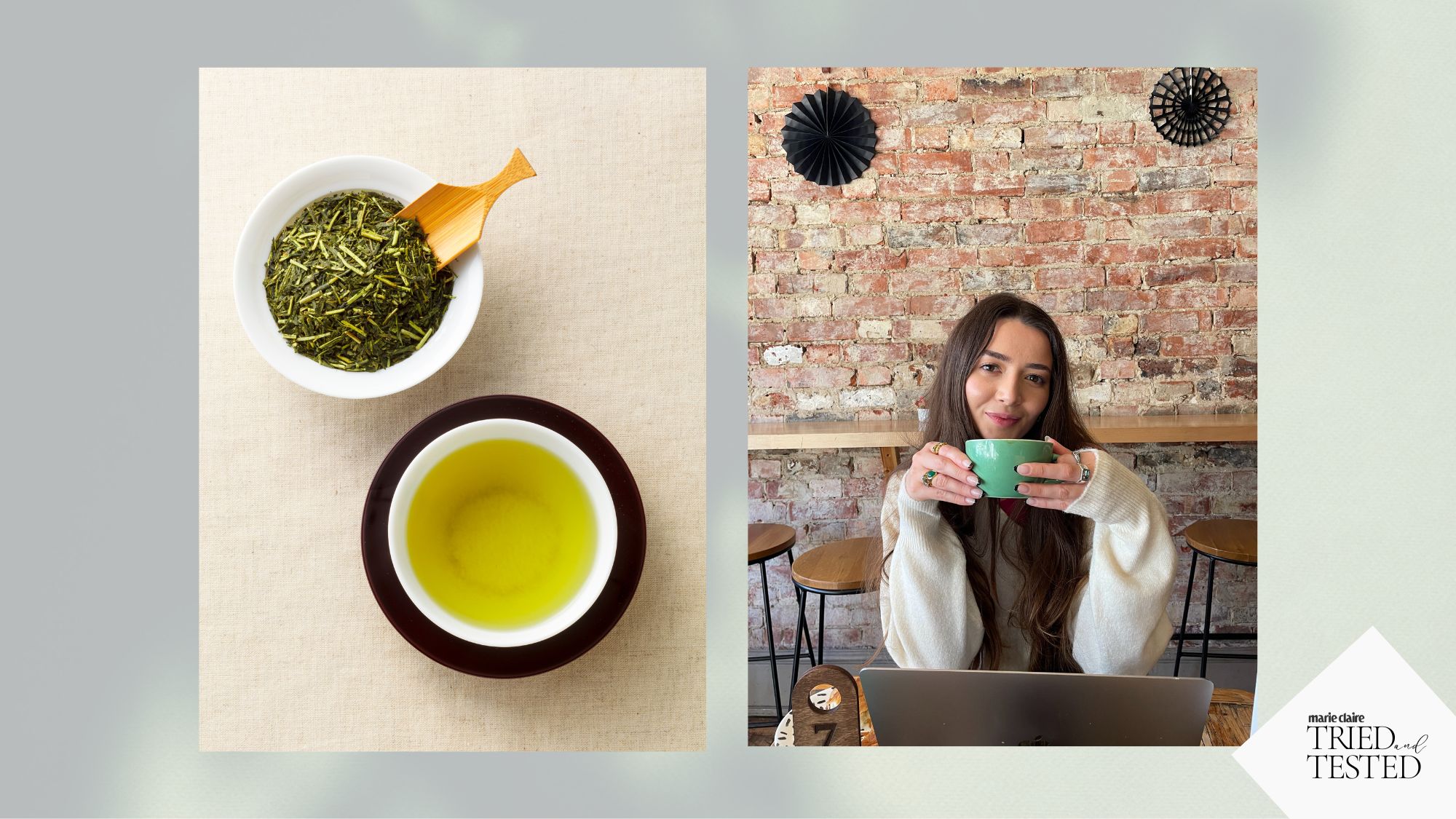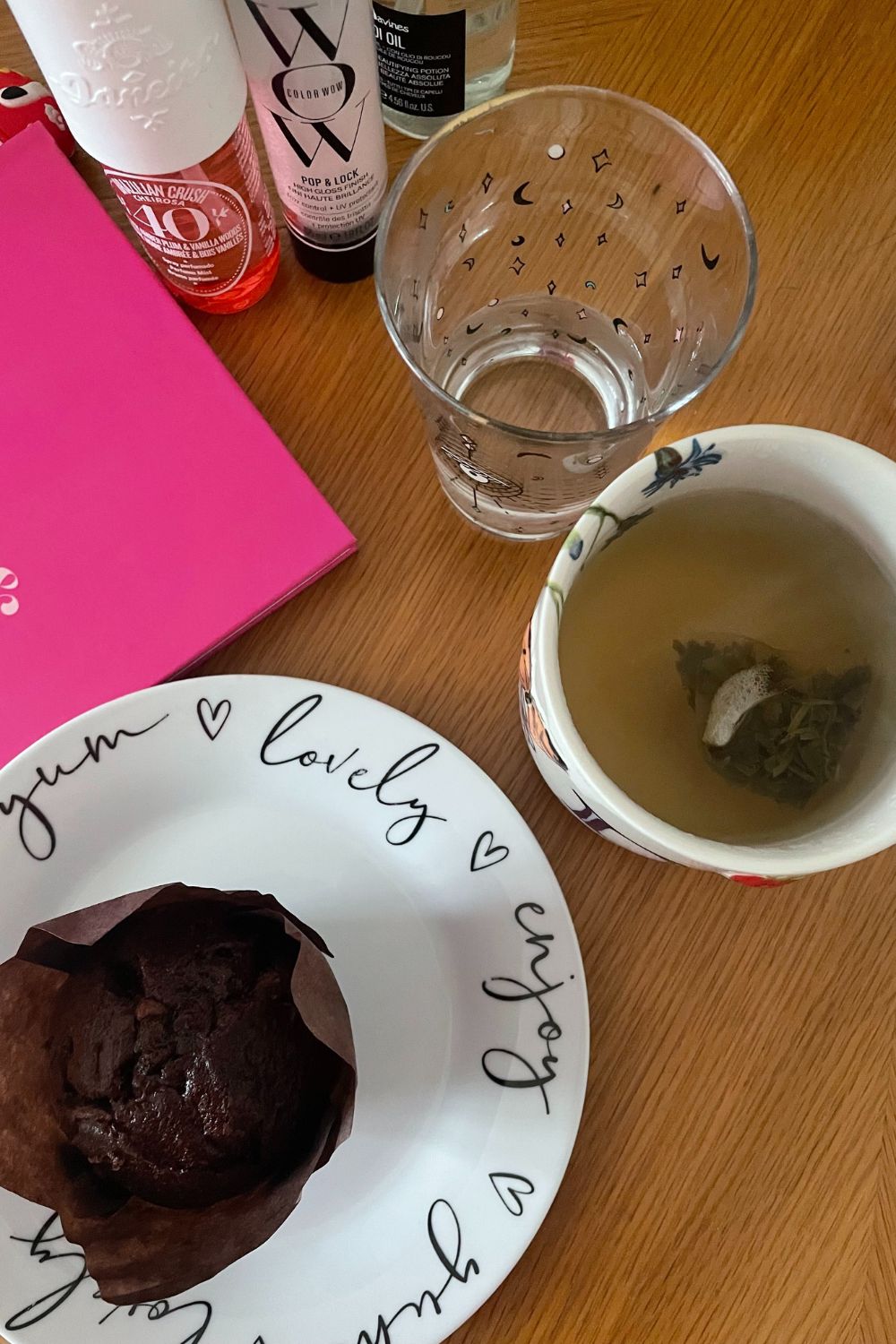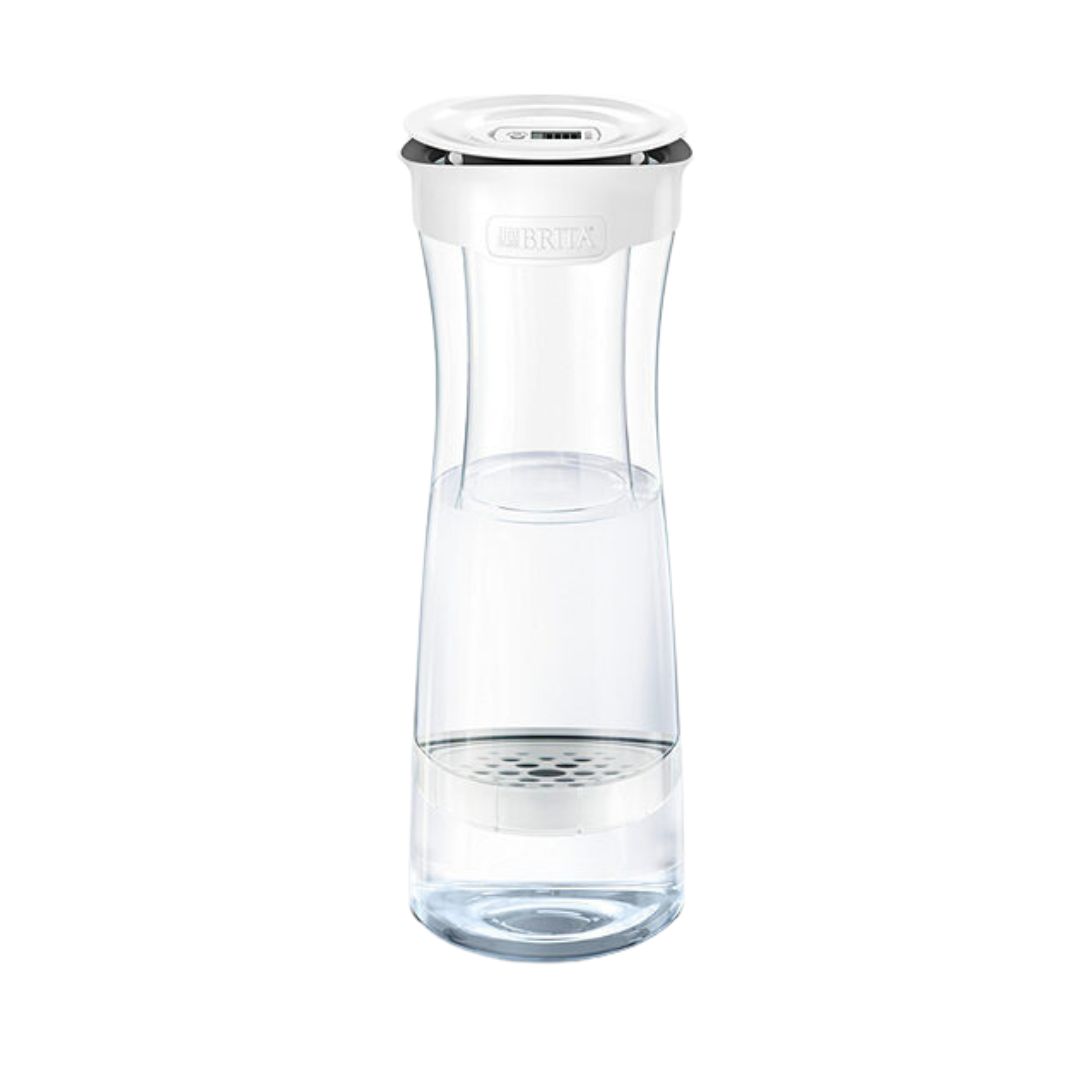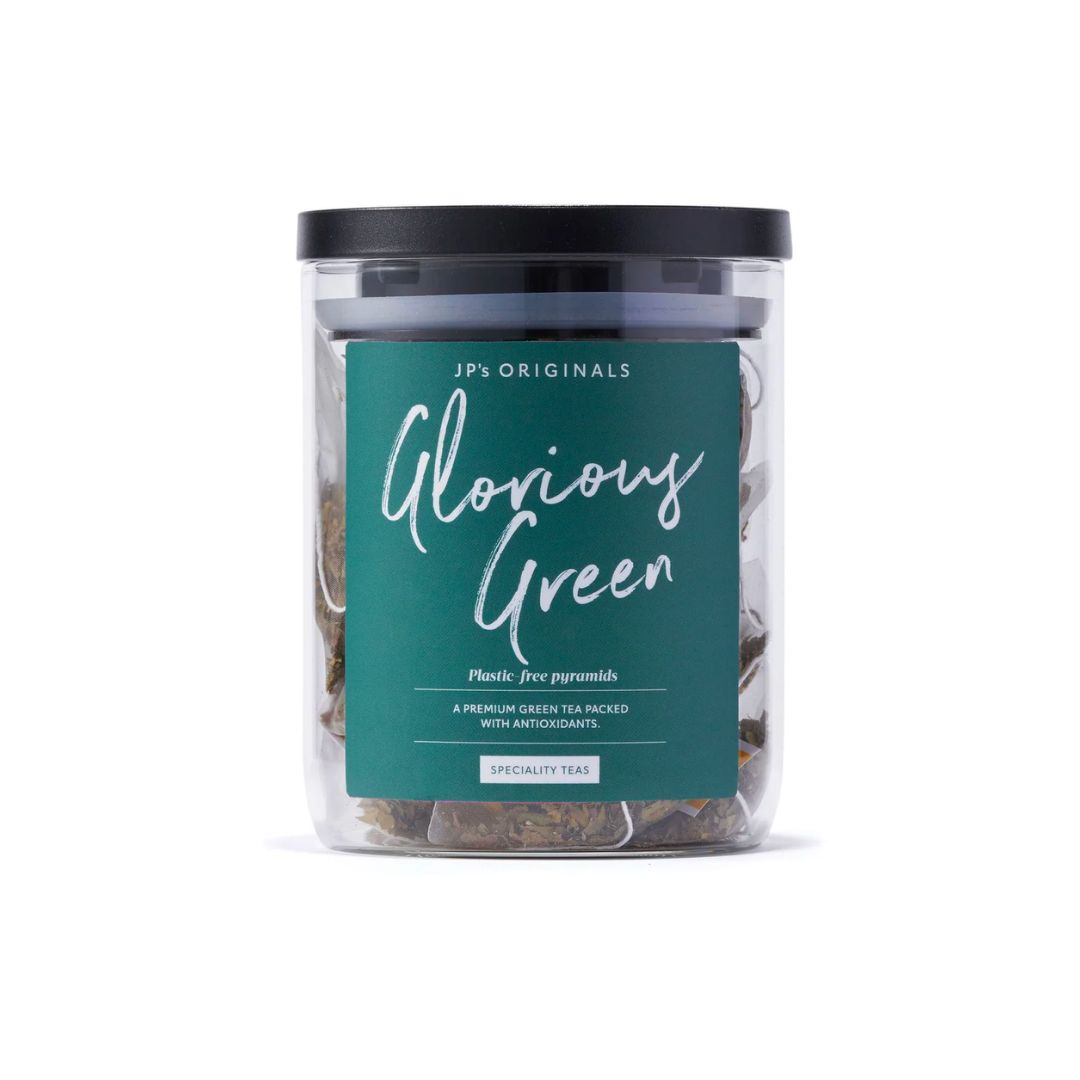I drank green tea every day for a week to boost energy and digestion - while I noticed some benefits, I'd warn against it
Beneficial for your health or one to skip?


75% of us use a hot drink to de-stress and relax, according to research by Breville. If you're someone who finds their morning cup of coffee a soothing constant or their 11am tea break a chance to recharge - me too (my morning oat cappuccino brings me daily joy). That said, while I love coffee, it doesn't necessarily love me (I'm looking at you, post-coffee jitters and anxiety). That's why, when a friend started raving about the green tea benefits, I thought it might be about time to swap my morning coffee for something a little greener.
A bit of background, first. I'm Dionne Brighton, a freelance writer and wellness enthusiast keen to give (just about) any new wellness trend a go at least once. I can hardly open my TikTok app at current without being bombarded with wellness girlies swearing by green tea for better energy, digestion and more, so decided to take it as a sign to add green tea into my daily routine.
I'd been thinking about opting for something less - well, anxiety-inducing for a while and already knew that drinking lemon water daily wasn't my cup of tea. So, at the beginning of this month, I started swapping out my daily coffees for green teas. Knowing that they offered around a third of the caffeine boost of coffee and other health perks, too, I was keen to give it a go. The results have been interesting, to say the least, and I've certainly learnt a lot from the experience. Below, I share how I got on, plus get top nutrition experts to share their take on the health benefits of green tea. Don't miss what happened when our Health Editor drank apple cider vinegar every day, while you're here.
What happens when you drink green tea every day? I tried it
What are the benefits of drinking green tea? 6 to know about
1. Green tea is good for your gut
Speaking to nutritional therapist Cara Shaw about the benefits of green tea, she explains that various studies have found green tea to be beneficial to your gut bacteria and microbiome. How? Well, in short, green tea "can help to modulate the microbiome to support both gut health and immunity," explains Shaw.
2. It's an antioxidant and anti-inflammatory
"Green tea's main component is a collection of polyphenols, with catechins as the most abundant. Epigallocatechin gallate (EGCG) is a type of catechin which acts as a potent antioxidant," Shaw tells Marie Claire UK.
Alongside its antioxidant properties, EGCG in green tea also contains anti-inflammatory and anti-viral properties. "Green tea is rich in antioxidants, which combat free radicals and support heart health by improving cholesterol levels," says Sonia Wahlroos, the founder of Nordic Nutritionist. Free radicals left un-combatted are thought to speed up the ageing process, making green tea a solid yes on the anti-ageing front.
3. It can provide a sustained energy boost
Green tea can offer a sustained energy boost - each cup contains around a third of the amount of caffeine as a cup of coffee. "Green tea also contains caffeine, albeit in lower amounts compared to coffee," Shaw continues. "The average cup of green tea has around 35mg of caffeine, whereas your average cup of coffee has around 95mg," she adds.
Marie Claire Newsletter
Celebrity news, beauty, fashion advice, and fascinating features, delivered straight to your inbox!
Do remember, though: it's important to note that caffeine is a stimulant, and while it can provide a mild energy boost and improve alertness, according to Shaw, it's also best enjoyed in moderation and ideally before midday, if you know you're sensitive to it.
4. It can improve your cognitive function
"L-theanine is another key component of green tea," explains Shaw. Never heard of it? "It's an amino acid that's been shown to enhance cognitive function, promote relaxation, and work in synergy with caffeine to provide a more sustained energy boost," according to the nutritionist.
5. Can use it as a pre-workout boost
Turns out, green tea may be the best pre-workout drink. "Research on green tea intake has shown the combination of green tea and exercise can accelerate aerobic metabolism and the utilization of fats in skeletal muscle," explains Shaw.
Try this: Having a green tea or matcha before a brisk walk or your morning workout may be beneficial to your metabolism and even weight, she goes on.
6. It's meant to be incredible for digestion
Last but by no means least, several research papers have linked green tea to an improved metabolism. Wondering why? It's thought to be down how good green tea is for your gut bacteria. "Studies have also shown that different types of catechins found in green tea, including EGCG, can increase the abundance of good gut bacteria such as Lactobacillus and Bifidobacterium, as well as increase the production of short-chain fatty acids," explains the nutritionist.
Remember, health and inflammation can be largely governed by the balance of the gut microbiota, which is why boosting your gut health is so key to overall health. Not to mention: "The l-theanine component within green tea promotes relaxation, which can in turn aid digestion," adds Shaw.
Are there any side effects of drinking green tea?
Good question. According to Wahlroos, while beneficial in a lot of ways for your gut health and more, green tea certainly has some drawbacks. "These are especially noticeable if you consume more than five cups a day," she shares.
Side effects can span:
- Insomnia
- Anxiety
- Irritability
- Upset stomach
- Interference with certain medications, such as blood thinners and blood pressure pills.
What happens if I drink green tea every day? I tried it for a week
Days one to three
In preparation for the experiment, I stock up on green tea by heading to my local health shop. While helping me decide which one I should choose, I was told that to really feel all the green tea benefits, I should wait two minutes after the water is boiled before pouring it into the tea bag and told to re-use it by adding more hot water once I'm done. As a sustainable queen, I was sold. However, this may have been my downfall. After lunch, I poured my first cup and quickly reminded myself how much I love the cleansing taste of green tea, much more than my usual earthy matcha. I went straight in for the refill and drank at least three cups throughout the afternoon.
I usually get bloated after my meals, but was pleasantly surprised at how drinking a cup of green tea after meals impacted my bloat. For the next two days, I have a cup of green tea two or three times a day. Sometimes, when I'm out, I stop off for a matcha, too - what you might call a green tea overload (if you didn't know already, matcha is a more concentrated version of green tea).
Compared to my morning coffee which causes me a serious slump come midday, I found myself more alert, focused and generally feeling great in the first three days. However, I was also awake at 11pm when I'm usually ready to sleep by 9pm. Bottom line: I didn't realise just how much caffeine I was consuming - and until late into the evening, too.
It was a bit of an adjustment struggling to sleep, and so from then on I stick to two to three cups of green tea a day maximum and aim to drink it before lunchtime, opting for caffeine-free herbal teas after lunch.
But that wasn't the only interesting side effect I noticed in the first few days. While I know that green tea can reduce bloating, I wasn't prepared for my bloat to disappear and be replaced by an awful lot of gas. At the end of day three, my boyfriend asked what had happened to me and threatened to sleep on the sofa away from the unfavourable scents.

A mug of green tea with a chocolate muffin for balance.
Days four to seven
On day four, I decided to switch it up and have a green tea first thing in the morning, rather than later in the day. This worked much better for me, leaving me with sustained energy throughout the day but an ability to switch off come bedtime. I also couldn't believe how much my bloating had subsided even after the biggest meals.
Come the end of the challenge, and I certainly have some thoughts. Will I be continuing to drink green tea regularly? I think so - I definitely noticed some positive benefits. I was less bloated, had more sustained energy throughout the day, and had fewer unwanted side effects than when drinking coffee daily.
However, I didn't take Shaw's advice - to "always start slowly when introducing a new food or drink into your daily routine." Instead, I dived into the deep end with three or more cups a day. Her advice? "See how you get on with one tea and gradually work your way up to your tolerance. If you're someone who has weaned themselves off of caffeine or who has any sign of chronic fatigue, high stress, or adrenal or thyroid dysfunction, stick to decaf varieties."
Finishing my challenge, I also found it interesting to reflect on how TikTok fads at current can convince us that we need to drink something every single day for it to be effective. I don't think this is the case, especially with something like green tea. It contains caffeine, after all, a known stimulant. As Wahlroos explains: "Green tea, while beneficial in many ways, has some drawbacks if consumed above five cups a day. It can cause insomnia, anxiety, irritability, or upset stomach in caffeine-sensitive individuals, and can interfere with certain medications, such as blood thinners and blood pressure pills."
Bottom line - if you drink one or two cups of green tea early enough in the day, you shouldn't notice any of the adverse side effects I did. That said, we all know sleep is one of the most important facets of health, and so anything that interferes with mine gets an automatic no from me.
I'll enjoy green tea every so often, but little and often seems a more sensible and health-beneficial approach, to me.
Shop our green tea essentials

Invest in your overall health (and green tea quality) with the BRITA water filter. Worth the investment.
When is the best time to drink green tea?
This will depend on your current diet, lifestyle, and medical conditions - because if you have any sign of chronic fatigue, high stress, or adrenal or thyroid dysfunction, it's best to swerve caffeine altogether.
That said, if you don't, it's down to personal preference. "To start your day with a boost of energy, opt for a mid-morning green tea," recommends nutritional therapist Cara Shaw. "Continue your l-theanine boost throughout the afternoon by sipping on more green tea, but do remember to opt decaf if it's past 2 pm," she goes on.
Prepping for a workout? "Drinking green tea, particularly matcha, before exercise, has been shown to support metabolism and thus may have a favourable effect on fat loss," she goes on.
Dionne Brighton is a writer at Marie Claire UK, specialising in all things shopping, beauty and fashion. Born and raised in North London, she studied Literature at the University of East Anglia before taking the leap into journalism. These days, you can find her testing out the latest TikTok beauty trends or finding out what the next full Moon means.
-
 Penn Badgley and Blake Lively kept their breakup a secret from the Gossip Girl cast and crew - here's what we know about their former relationship
Penn Badgley and Blake Lively kept their breakup a secret from the Gossip Girl cast and crew - here's what we know about their former relationshipBy Jenny Proudfoot
-
 Spring has finally sprung - 6 best outdoor workouts that are totally free and boost both body and mind
Spring has finally sprung - 6 best outdoor workouts that are totally free and boost both body and mindSoak in the nature and boost Vitamin D *and* endorphins.
By Anna Bartter
-
 This iconic rose perfume is a compliment magnet—it makes me feel ‘put together’ after just one spritz
This iconic rose perfume is a compliment magnet—it makes me feel ‘put together’ after just one spritzGrown-up and elegant, yet not at all dated.
By Denise Primbet

